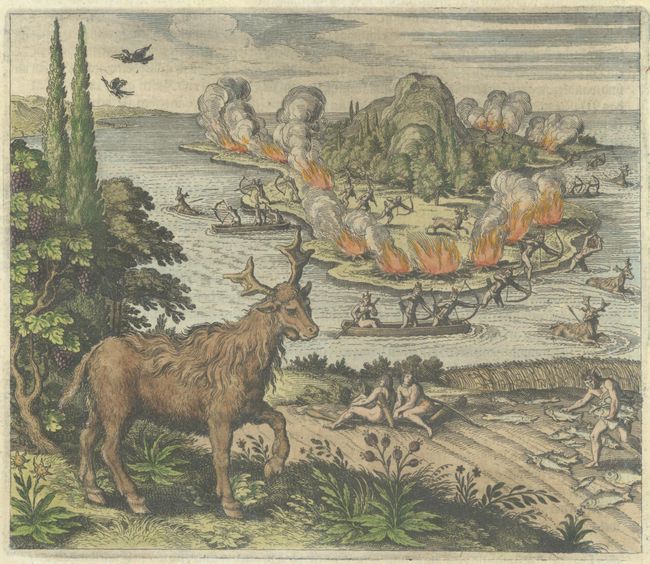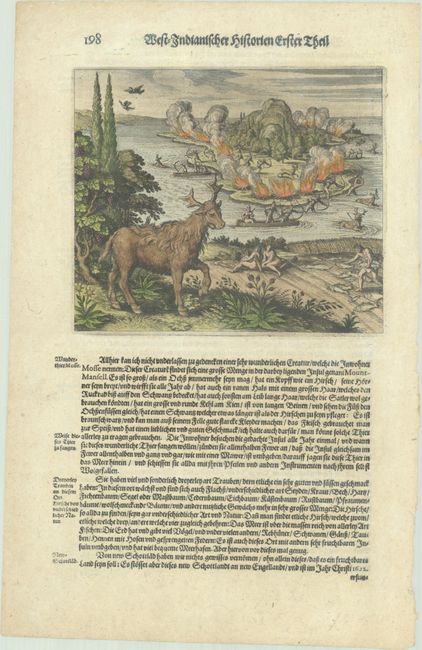Subject: Hudson Bay, Canada, Natives
Period: 1631 (published)
Publication: Historia Antipodum oder Newe Welt…
Color: Hand Color
Size:
6.9 x 5.9 inches
17.5 x 15 cm
This copper engraving is from a remarkable series of publications, illustrating voyages of discovery and travels of exploration to various parts of the world. The project was begun by Theodore de Bry of Frankfurt, in 1590 and was to continue for another 54 years. They became known collectively as the Grands Voyages (to America and the West Indies) and the Petits Voyages (to the Orient and the East Indies). De Bry died after the first six parts of the Grands Voyages were completed. The project was completed initially by his widow and two sons, Johann Theodore de Bry and Johann Israel de Bry, then by Johann Theodore's son-in-law, Matthaus Merian, in 1624.
This stunning and rare engraving first appeared in Part XIII of De Bry's Grands Voyages (1628). A majestic moose appears in the foreground, while in the distance the native technique for moose hunting is depicted. The hunters light inland fires that drive the moose to the water, where teams of hunters in canoes wait with their bows and arrows at the ready. Natural resources like hemp, flax, and fish are also shown. This sheet appeared in Johann Ludwig Gottfried's Historia Antipodum, an abridgement of De Bry's voyages to America that incorporated much new material. Matthaus Merian, de Bry's son-in-law and publisher for Historia Antipodum, was granted access to De Bry's copper-engraved plates. On a sheet of German text measuring 9.3 x 14.4".
References:
Condition: A
Near fine with faint marginal toning.



